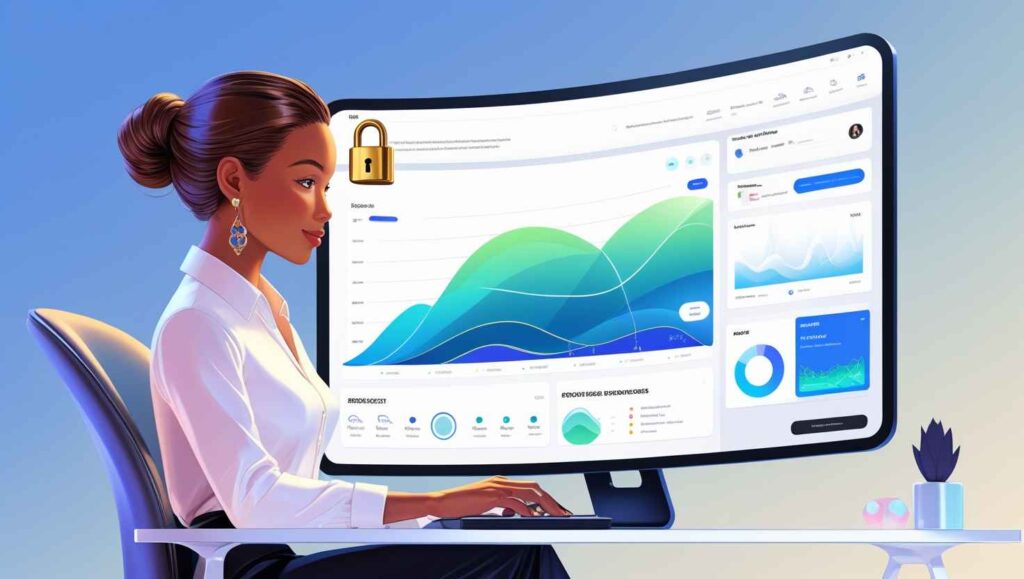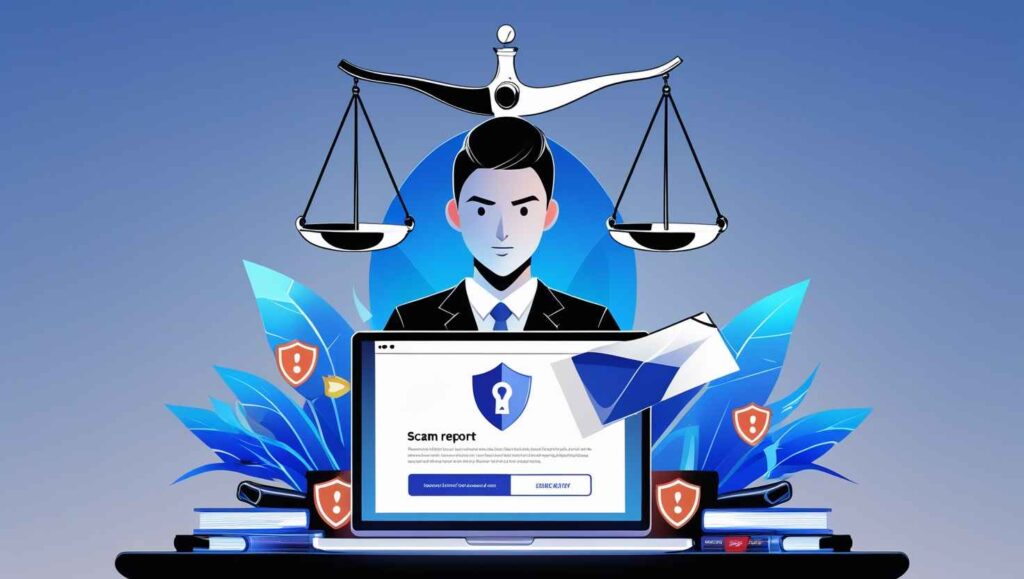Introduction
Freelancing online is an exciting way to work independently, but it comes with its share of challenges—scams being a major one. Whether you’re new to freelancing or have been at it for years, staying safe while securing legitimate opportunities is crucial. Let’s dive into how you can protect yourself from falling victim to online scams.
The Reality of Freelance Scams

The rise of online freelancing has created a fertile ground for scammers. These people prey on the trust of freelancers, often using manipulative tactics to exploit their skills, time, or money. From non-payment for work to identity theft, the risks are real. The good news? You can take simple, proactive steps to avoid these pitfalls.
Start with Trusted Platforms
The easiest way to reduce your risk is by sticking to reputable freelancing platforms like Upwork, Fiverr, or Toptal. These sites have safeguards in place to protect freelancers, including verified client accounts, secure payment systems, and dispute resolution mechanisms.
However, even on trusted platforms, scammers can sneak through. Look carefully at client profiles, check for reviews or ratings, and ensure they have a history of successful projects. If a profile feels incomplete or suspiciously new, proceed cautiously.
Be Wary of Unusual Offers

If a job offer seems too good to be true, it probably is. Scammers often dangle enticing pay rates or quick deadlines to lure freelancers in. A common trick is offering a high payment upfront for a simple task but then vanishing without paying. Always question why someone is willing to pay such an inflated price for minimal effort it’s often a red flag.
Recommended = How to Learn Graphic Design for Freelancing
Similarly, avoid job offers that demand payment from you. Genuine clients will never ask you to pay for training, software, or “application fees.”
Get Everything in Writing
One of the simplest ways to protect yourself is by insisting on a contract. A proper agreement outlines what you’ll deliver, when you’ll deliver it, and how much you’ll get paid. If the client resists formalizing the deal, take it as a warning sign.
Even on platforms where contracts are embedded in the process, double-check the details. Make sure the milestones and payment structure are clearly defined, and don’t start work until everything is agreed upon.
Avoid Free Work

Many freelancers fall into the trap of completing “test tasks” to prove their skills. While it’s reasonable for clients to want to see samples of your work, they should pay for it. If a client asks for a large or complex task without offering payment, politely decline. Instead, share samples from your portfolio or offer smaller paid trials.
Protect Your Information
In the online freelancing world, your personal and financial information is precious. Scammers might try to extract sensitive details under the guise of “setting up payments” or “verifying your identity.” Never share your bank account details, social security number, or credit card information unless you’re sure the platform or client is legitimate.
When communicating with clients, stick to official messaging systems within freelancing platforms. This ensures there’s a record of your conversations and reduces the risk of phishing attempts.
Recognize Overpayment Scams

Overpayment scams are becoming increasingly common. In this scheme, a client sends you a payment that exceeds the agreed amount, then asks you to return the excess. Often, the original payment turns out to be fake, leaving you out of pocket.
The solution? Never accept overpayments or send refunds without verifying the funds through your bank. Stick to secure payment methods, and always wait until payments clear before withdrawing or returning money.
Trust Your Instincts
Your intuition is one of the best tools you have for avoiding scams. If a client or project feels “off,” don’t ignore those feelings. Pay attention to how clients communicate—legitimate clients are usually professional, clear, and respectful.
For example, if a client avoids answering your questions or keeps pressuring you to start work immediately, take a step back. Scammers often rely on urgency to stop you from thinking critically.
If you want to read more about How to Avoid Scams While Freelancing Online
What to Do If You’re Scammed

Sometimes, despite your best efforts, you might fall victim to a scam. If this happens, act quickly:
- Report the Incident: Inform the freelancing platform or website where the scam occurred. Most platforms have systems in place to investigate and penalize scammers.
- Secure Your Accounts: If you’ve shared sensitive information, change your passwords immediately. For financial scams, contact your bank to prevent further losses.
- Learn from the Experience: Reflect on what went wrong and use it as a lesson. Scams can be discouraging, but they’re also an opportunity to improve your vigilance.
Conclusion
Freelancing online offers incredible freedom and opportunities, but it’s important to navigate this space wisely. By staying alert, trusting your instincts, and following basic safety practices, you can protect yourself from scams and focus on growing your career. Remember, a little caution goes a long way in keeping your freelancing journey safe and rewarding.
